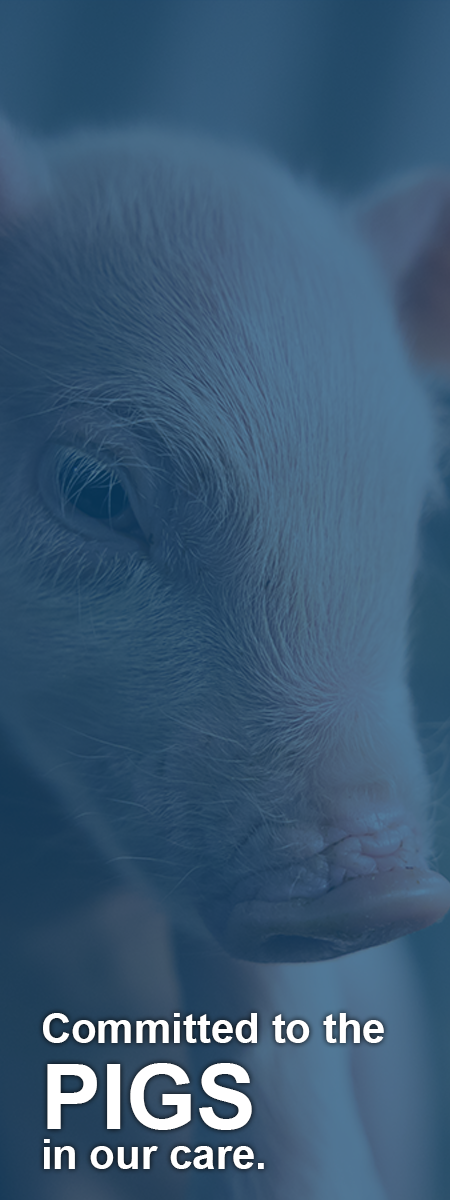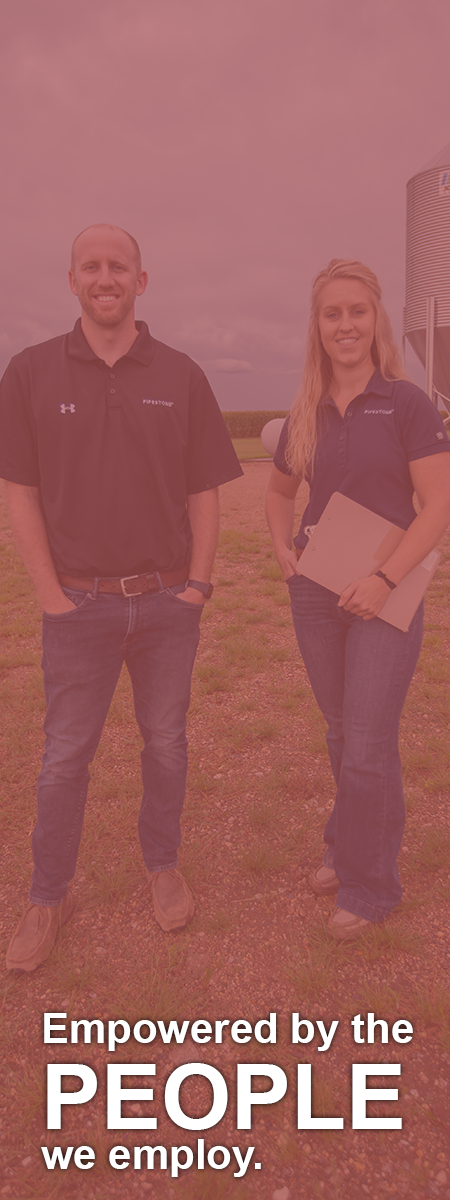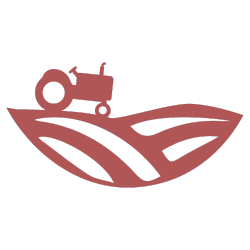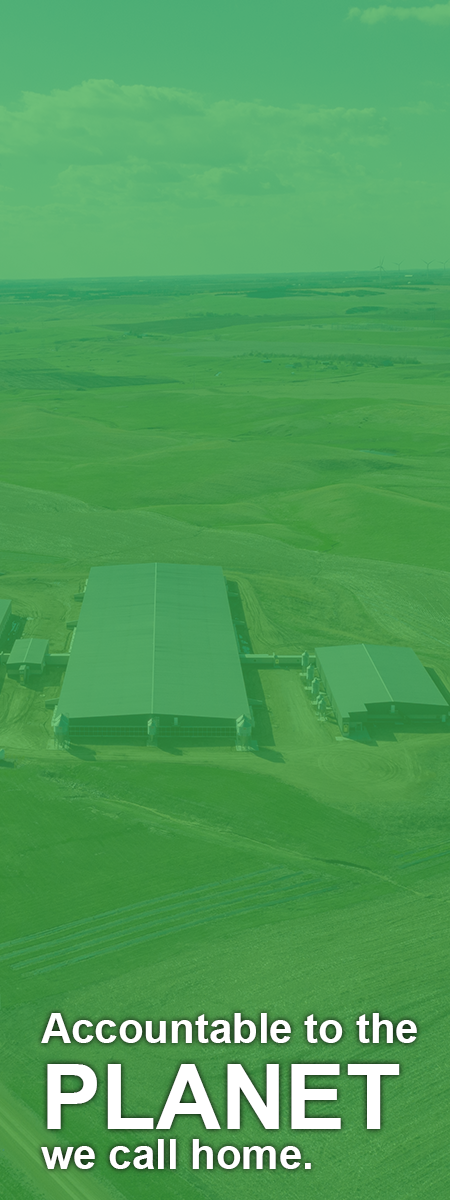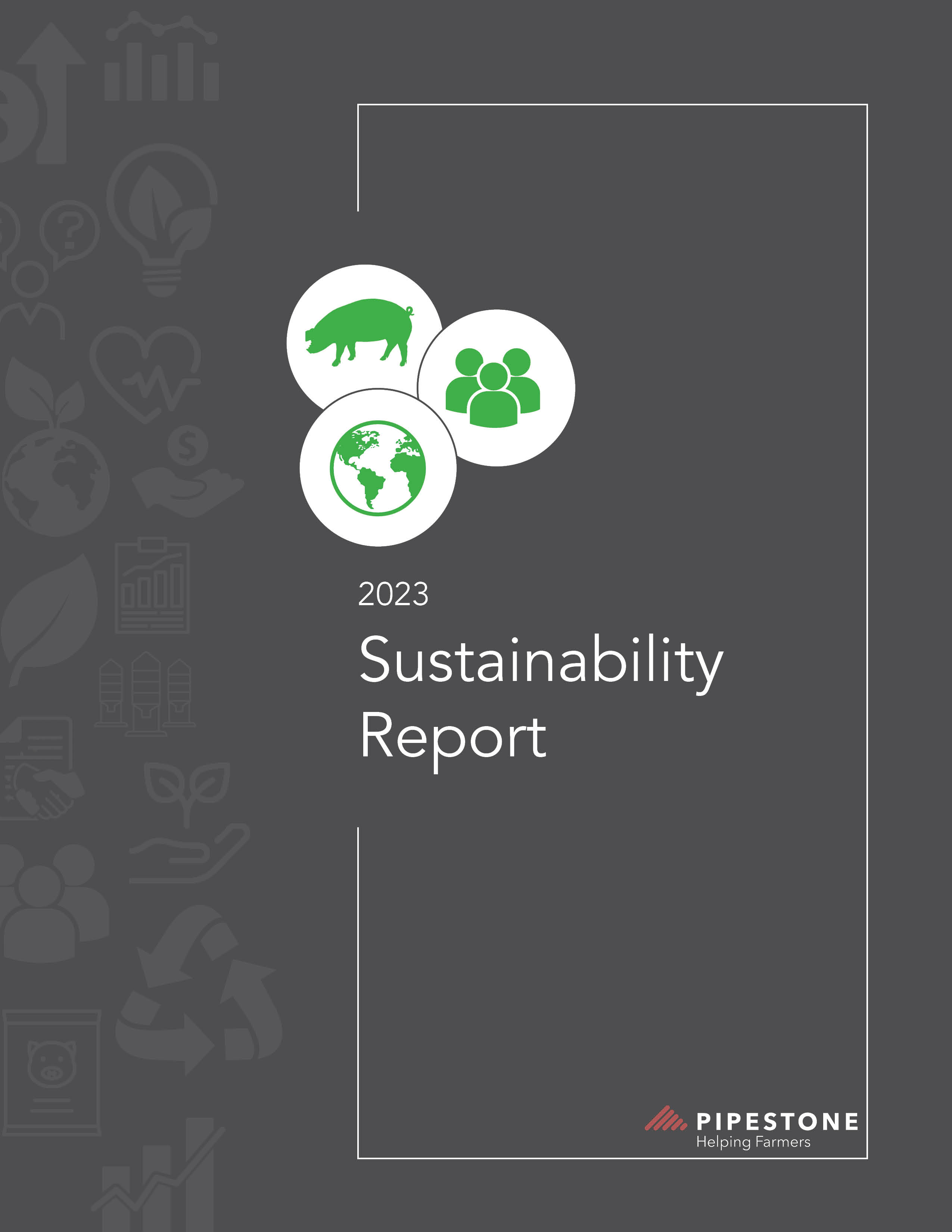Sustainability
PIPESTONE seeks to continuously improve how we care for our pigs, people, and our planet. Together, we can be the best farmers on the planet, for the planet.
Biosecurity
PIPESTONE developed a Wean-to-Market Biosecurity Standard and Assessment to evaluate practices relative to the standard.
Welfare
We work with our Welfare Expert Panel to implement policies and develop new initiatives focused on animal welfare and care.
SPS Plans
Foreign Animal Diseases present the greatest risk to the animals we care for and to the production for our operations. Secure Pork Supply Plans ensure that, in the case of a FAD, any negative impact is minimized.
Responsible Antibiotic Use
The Pipestone Antibiotic Resistance Tracker (PART) has been launched to track antibiotic use in real-time and provides web-based tools for both the producer and veterinarian.
Employee Satisfaction
Without a good team, we couldn’t execute our mission of Helping Farmers every day. Benefits in the top 1/3 of the pig industry, skill and leadership development programs, and ongoing employee engagement have resulted in high team satisfaction.
Training
PIPESTONE has training requirements for all employees, no matter how many years of experience one may have. We believe proper training plays a big role in making the workplace successful.
Community
We are committed to caring and supporting both our local and global communities. Distributing pork, supporting first responder organizations, FFA chapters, and international charities focused on fighting food insecurity are just a few of the ways we give back.
Scholarships
PIPESTONE invests in the future of agriculture by supporting families, team members and students through our scholarships.
Carbon Footprint
For a sow farm, there are 6 categories that contribute to the carbon footprint. Those include feed, energy, manure, fuel, mortality disposal, and water. We’re working on ways to reduce our footprint in each of these areas.
Feed
Feed is one of the primary inputs in our system that accounts for a large portion of our resource use. Hybrid rye research as a sustainable alternative feed ingredient to corn has shown a marked reduction in the amount of energy needed for transport and a reduction to our carbon footprint.
Energy
Continuing efforts to replace heat lamps with heat mats in stalls, shifting to LED bulbs from the less efficient incandescent or fluorescent bulbs, and updating our office spaces with motion sensor switches in low traffic areas are just a few of the practices we continue to implement and expand.
Water
We’re working to improve water efficiency by installing digital water meters to collect real-time data as well as exploring a Livestock Water Recycling program.
Waste
The expansion of our recycling program has included getting services where provided, developing in-house recycling routes that service over 20 farms where rural recycling service is unavailable, and finding logistical solutions for rural location pick-ups across our entire network of offices and farms.

